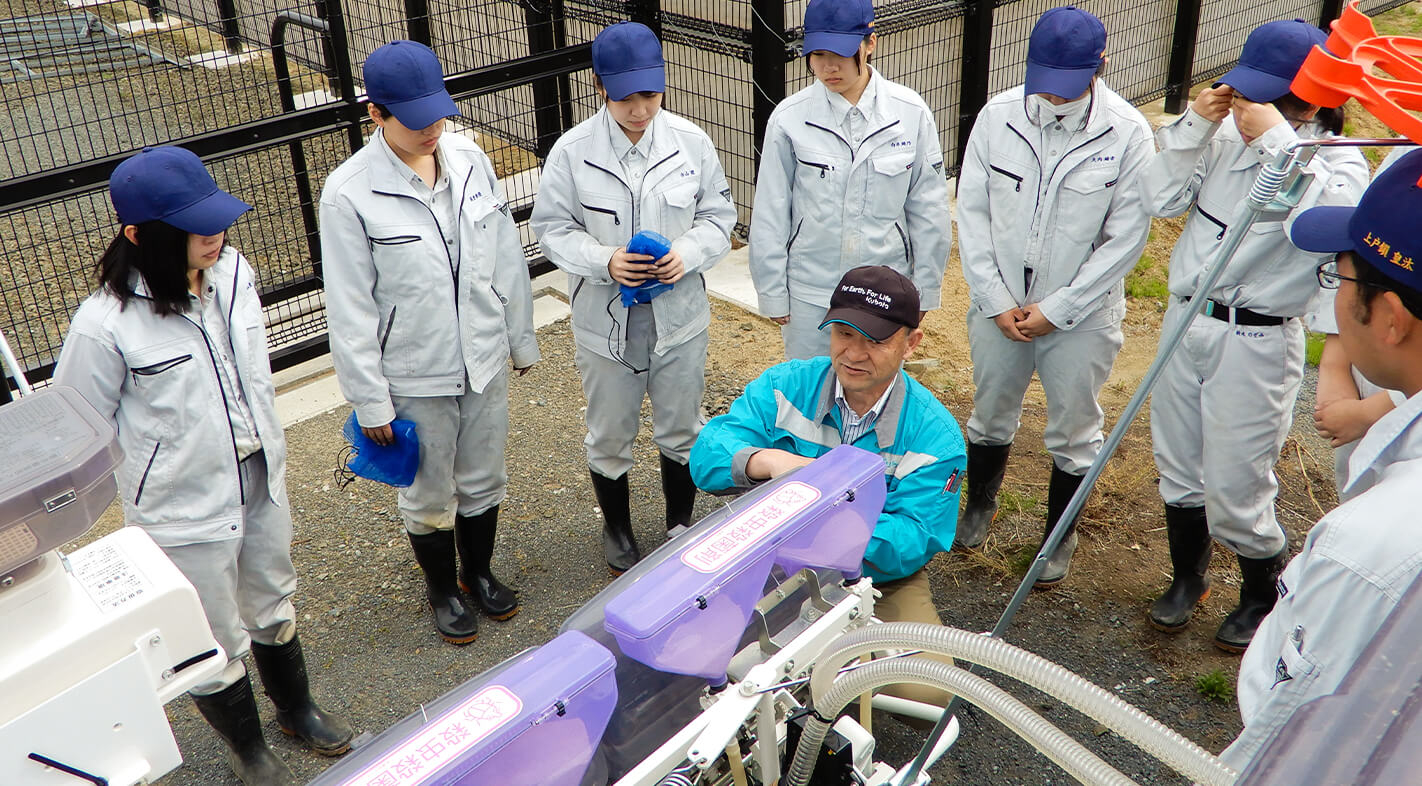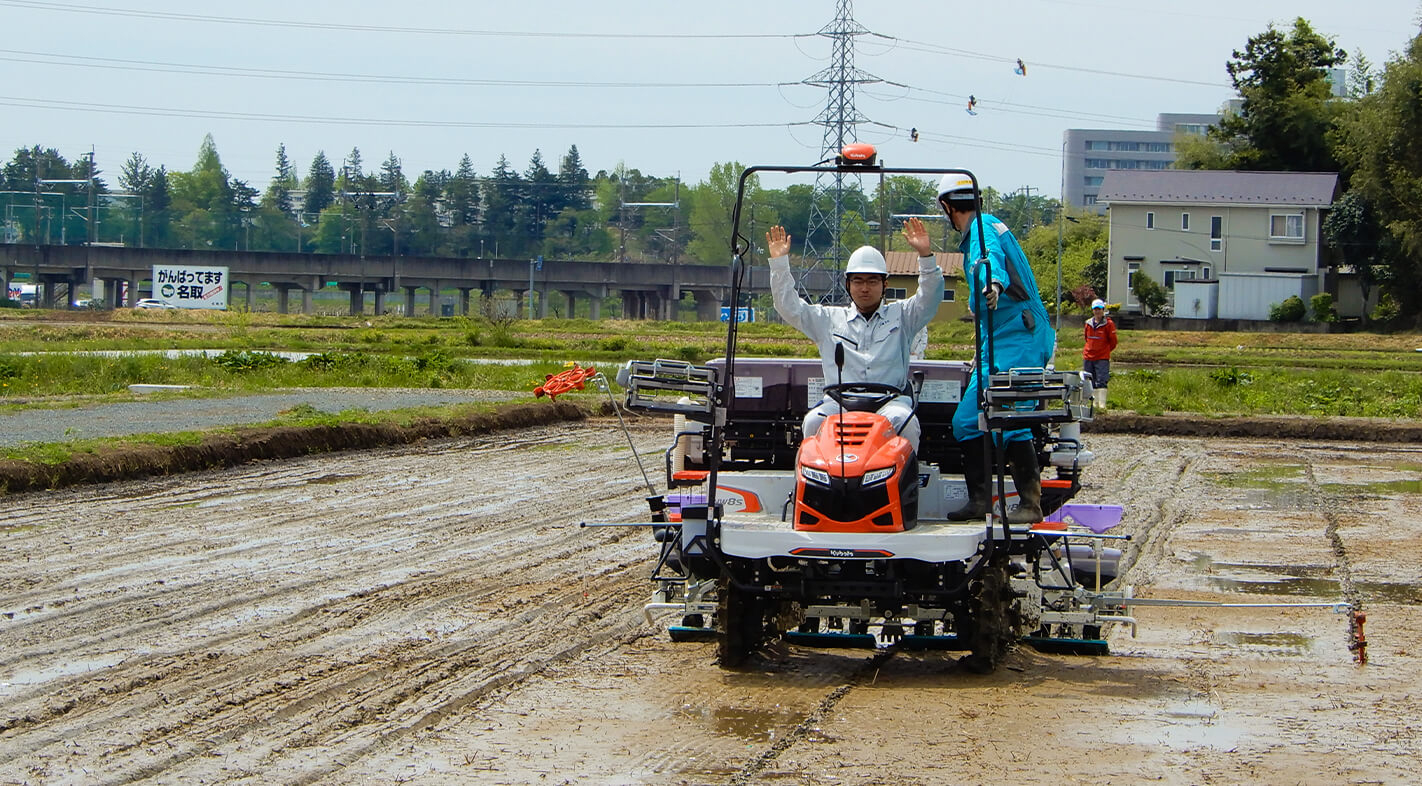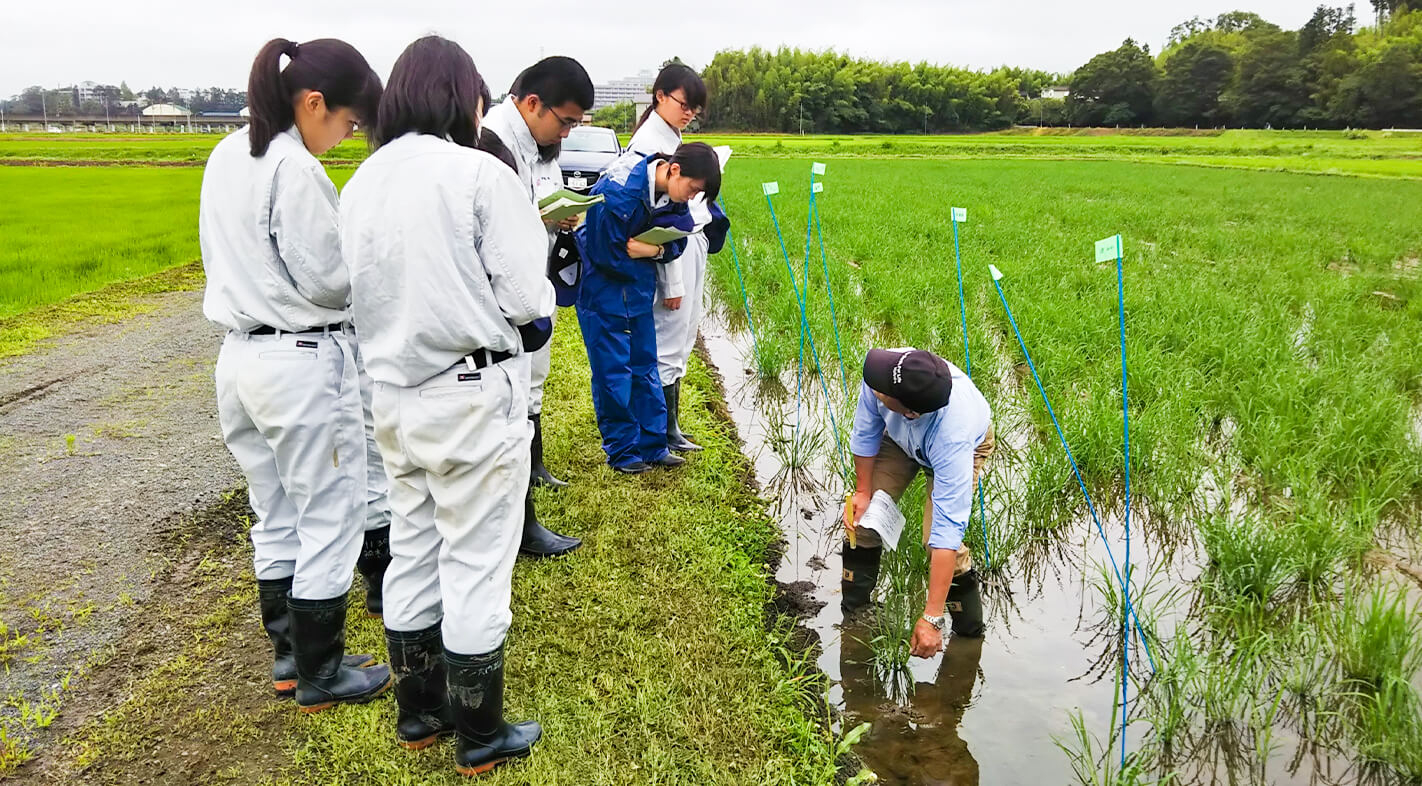Cooperating with Rice Farming at Agricultural High Schools in Miyagi and Fukushima

- Reconstruction Support
Cooperating with Agricultural High School Hands-on Rice Farming Training to Support Young People Who Will Support the Future of Agriculture in Tohoku
Kubota, one of whose primary businesses is agriculture and which aims to create a prosperous life for humans and an abundance of food in the future, is committed to assisting young people who will support the future of agriculture. Since 2012, Kubota has been offering special instruction on directly sowing iron-coated seeds at agricultural high schools affected by the Great East Japan Earthquake.
Miyagi Prefecture Agriculture High School (Miyanou), founded in 1885, and Fukushima Iwaki Agricultural High School (Banno), founded in 1944, have strong reputations for turning out outstanding figures in the field of agriculture, and have continued to contribute to the development of local agriculture. However, the extensive damage caused at both schools by the 2011 Great East Japan Earthquake included flooded and collapsed school buildings.
To contribute to disaster-stricken area reconstruction as well as to assist young people who will support the future of local agriculture, since 2012 at Miyanou, and since 2013 at Banno, Kubota has been offering special instruction on a rice farming technique for directly sowing iron-coated rice.
Directly sowing iron-coated rice is a farming technique in which seeds are coated with iron powder and directly sown in drained fields, as opposed to the conventional method of transplanting cultivated seedlings into flooded fields. As well as reduced workloads and costs because of the eliminated need for seedling cultivation, another merit is that since this planting season does not overlap with that of rice transplanting, the two methods can be used in conjunction with one another to easily expand the scale of management.
The technique and know-how of directly sowing iron-coated rice that Kubota has cultivated is shared during the special instruction sessions held at both schools. The special instruction sessions are provided on: classroom study on topics such as techniques for and information on directly sowing iron-coated rice, the stages of rice growth, and pest damage; practical training on coating the seeds with iron powder; the actual work involved in sowing seed with a rice transplanter; intermediate management work to observe the growing rice and learn about managing the water needed for growth; harvesting work with a combine harvester; and soil preparation.
These special classes enabled Miyanou students working with Local Agriculture Recovery Projects to support farmers affected by the Great East Japan Earthquake to directly sow iron-coated rice for neighboring farmers who were unable to plant rice in their tsunami-damaged fields, as well as in the fields of Miyanou alumni who had returned to farming following the disaster. Rice growing on disaster-affected farms was supported.
There is no end to our support for the reconstruction of the disaster-affected areas and the development of human resources who will support the future of agriculture. Kubota will continue to support the restoration of local agriculture which with schools and local communities has become an integral unit.

